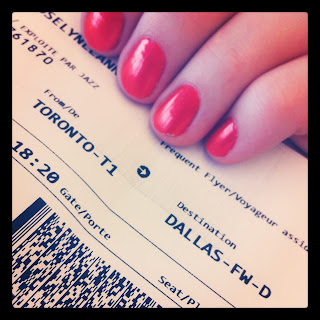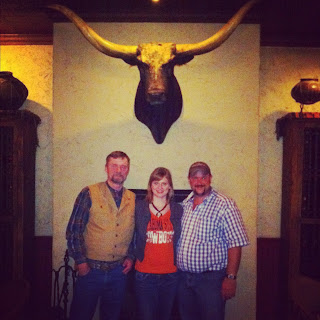I believe I was a minority in this class from the beginning in that I was already using most of the social media platforms we were required to become familiar with. I joined Twitter last summer and have been operating my personal agriculture blog, Absolutely Agriculture, since May of 2011. My existing knowledge of these platforms made some of the ALES 204 classes go by fairly slow as the concepts were completely new to most of the students. However, I learned a lot more about using other platforms such as LinkedIn and Flickr which I was not previously familiar with.
 |
| Onbile. (2012). Social Media Strategies Planning. [Image]. Retreived April 10, 2012, from http://www.onbile.com/info/social-media-strategies-planning/ |
Now that I am equipped with such an extensive social media toolbox, I plan to use it to assist me in my future career goals. I am attending Oklahoma State University to obtain my degree in Agriculture Communications & Economics, after which I plan to find a career within the agriculture communications field. It is incredibly likely that my future positions will include social media. The action steps I plan to take are: building my LinkedIn profile and network, adding my resume/CV to my personal blog, and creating a blogging schedule over the summer to increase readership on my personal blog. ALES 204 was great motivation to continue to learn more about social media and it allowed me to try out platforms I wouldn't have tried.
I feel as though this class should focus more on professional skills in the future. Social media is important, but having the skills to build a resume, interview, and construct a PowerPoint are equally important. Although we touched on these in classes and labs, I believe it would be more effective to include these components in major assignments. Everyone in a communication class should have to stand up and speak to the class at least once! We did this in labs but I would find it more effective if it were for marks rather than simply participation. Call me competitive, but I think a lot of students would agree!
ALES 204 was a very educational and refreshingly nontraditional addition to my University of Alberta degree. I think this class would benefit from taking the student evaluations to heart with the goal to making it even more beneficial for the students of the Faculty of Agriculture, Life, and Environmental Sciences. I appreciate all the hard work done by Dr. Laccetti and the TA's in constructing and delivering course material for this class. I commented on Dani's, Hilary's, Mark's, Jessica's, and Rebecca's blog posts.





















